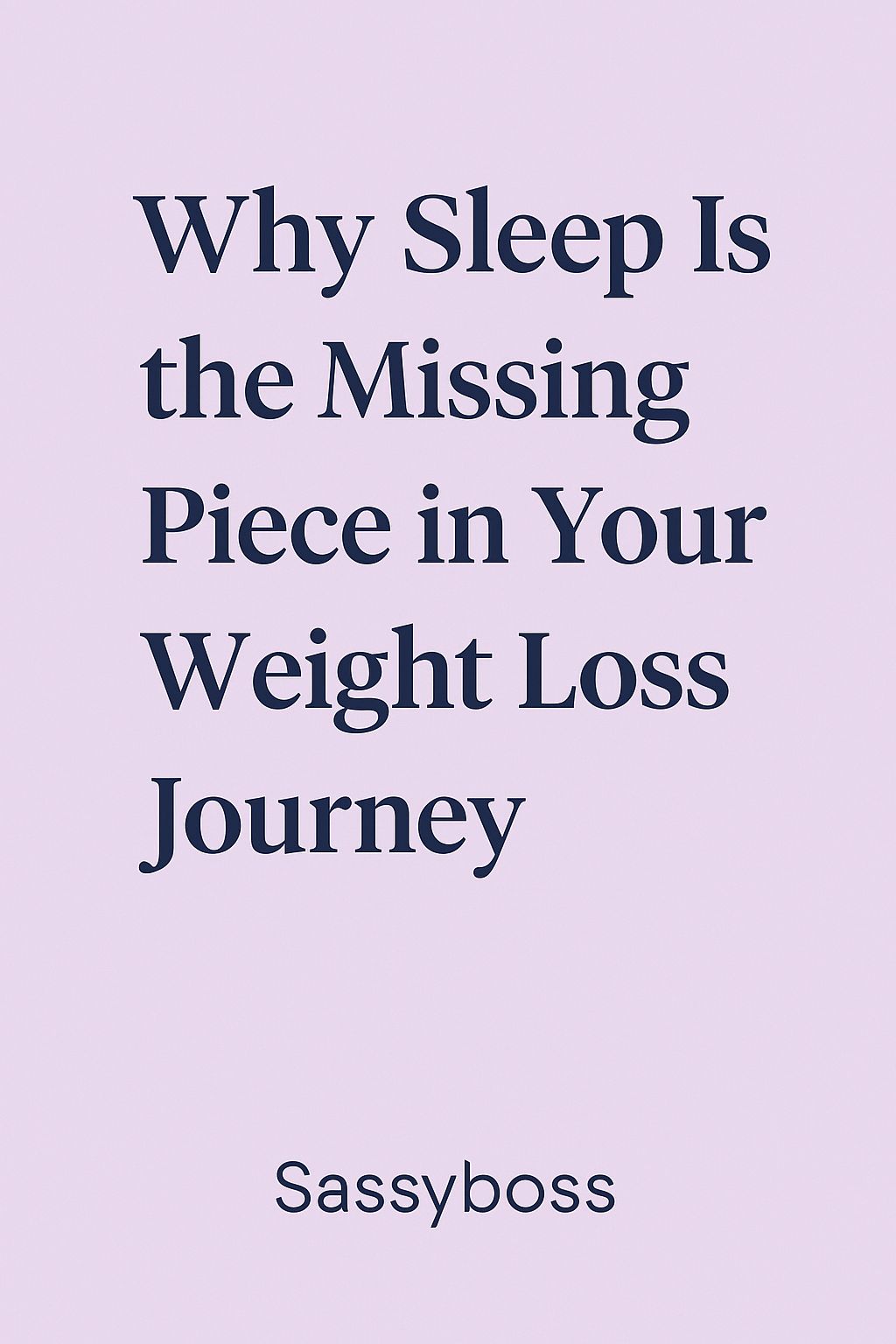Why Sleep Is the Missing Piece in Your Weight Loss Journey
In the pursuit of weight loss, most people focus on diet and exercise. Calories in versus calories out, clean eating, HIIT workouts—these are the phrases that dominate fitness plans. But there’s one critical component that’s often overlooked and undervalued: sleep. If you’ve been giving your all in the kitchen and the gym but still not seeing results, it might be time to look at what’s happening in the bedroom.
The Sleep-Weight Connection
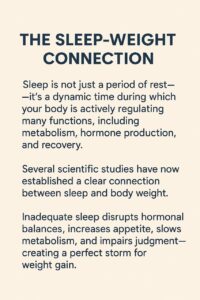
Sleep is not just a period of rest—it’s a dynamic time during which your body is actively regulating many functions, including metabolism, hormone production, and recovery. Several scientific studies have now established a clear connection between sleep and body weight. Inadequate sleep disrupts hormonal balances, increases appetite, slows metabolism, and impairs judgment—creating a perfect storm for weight gain.
Hormones at Play: Ghrelin and Leptin
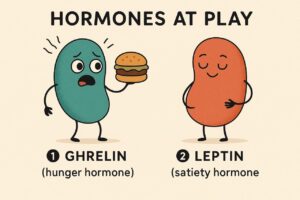
Two key hormones involved in appetite regulation—ghrelin and leptin—are heavily influenced by sleep. Ghrelin is the “hunger hormone” that signals your brain when it’s time to eat, while leptin is the “satiety hormone” that tells you when you’re full.
When you’re sleep-deprived, ghrelin levels increase and leptin levels decrease. This means you’re not only hungrier, but you’re also less likely to feel satisfied after eating. This hormonal imbalance can lead to increased calorie intake, especially from high-carb, high-fat comfort foods.
Sleep and Cravings
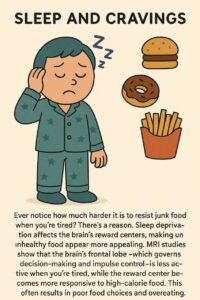
Ever notice how much harder it is to resist junk food when you’re tired? There’s a reason. Sleep deprivation affects the brain’s reward centers, making unhealthy food appear more appealing. MRI studies show that the brain’s frontal lobe—which governs decision-making and impulse control—is less active when you’re tired, while the reward center becomes more responsive to high-calorie food. This often results in poor food choices and overeating.
Metabolism Slows Down
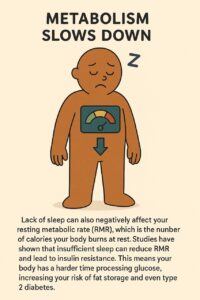
Lack of sleep can also negatively affect your resting metabolic rate (RMR), which is the number of calories your body burns at rest. Studies have shown that insufficient sleep can reduce RMR and lead to insulin resistance. This means your body has a harder time processing glucose, increasing your risk of fat storage and even type 2 diabetes.
The Cortisol Connection
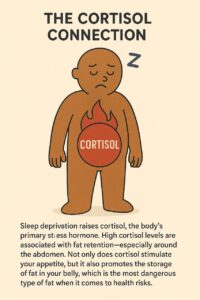
Sleep deprivation raises cortisol, the body’s primary stress hormone. High cortisol levels are associated with fat retention—especially around the abdomen. Not only does cortisol stimulate your appetite, but it also promotes the storage of fat in your belly, which is the most dangerous type of fat when it comes to health risks.
Muscle Loss and Poor Recovery
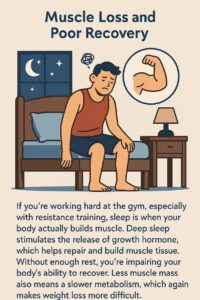
If you’re working hard at the gym, especially with resistance training, sleep is when your body actually builds muscle. Deep sleep stimulates the release of growth hormone, which helps repair and build muscle tissue. Without enough rest, you’re impairing your body’s ability to recover. Less muscle mass also means a slower metabolism, which again makes weight loss more difficult.
How Much Sleep Do You Really Need?
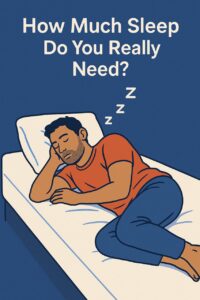
Most adults need 7 to 9 hours of quality sleep per night. However, it’s not just about the number of hours; quality matters too. Fragmented or poor-quality sleep won’t offer the same metabolic and hormonal benefits as uninterrupted, deep sleep.
Tips for Improving Sleep for Better Weight Loss
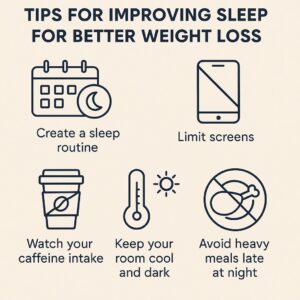
1. Create a sleep routine: Go to bed and wake up at the same time every day—even on weekends.
2. Limit screens: Avoid blue light from phones, tablets, and TVs at least an hour before bed.
3. Watch your caffeine intake: Avoid caffeine in the afternoon and evening.
4. Keep your room cool and dark: A comfortable sleep environment improves sleep quality.
5. Avoid heavy meals late at night: Eating too close to bedtime can disrupt your sleep cycle.
Final Thoughts
Sleep isn’t just a passive activity—it’s an active contributor to your health and your weight loss goals. If you’ve hit a plateau in your journey or feel like you’re doing everything “right” without seeing results, look closely at your sleep patterns. Often, this overlooked pillar of health could be the key that unlocks your progress. So the next time you plan your workout and meals, don’t forget to plan your sleep too—your body (and waistline) will thank you.
